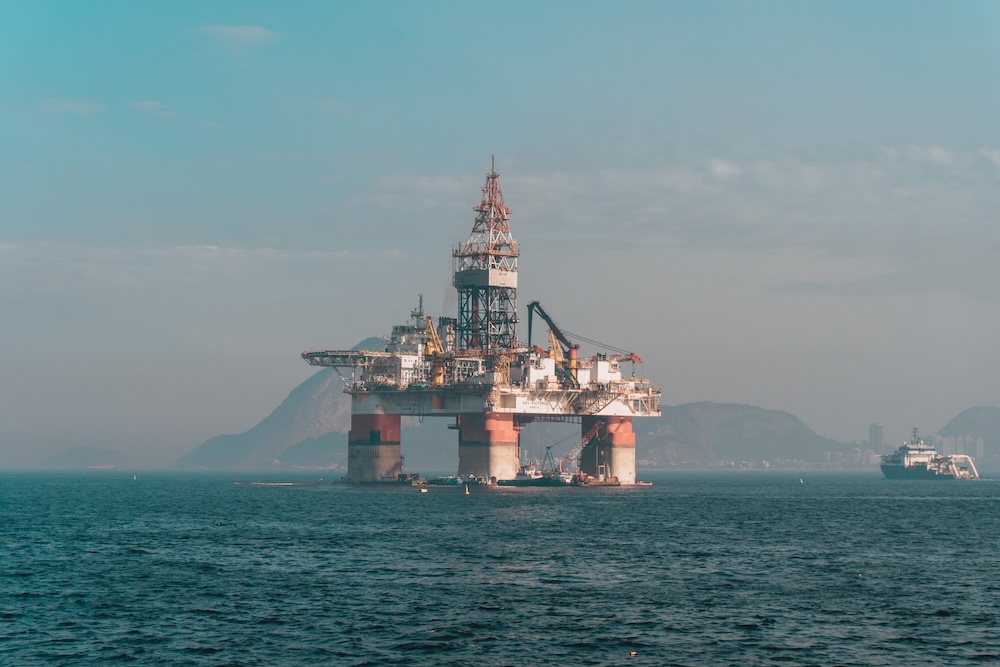Coral reefs are among the most diverse and fragile ecosystems on Earth — living structures that sustain a quarter of all marine species and protect coastlines from erosion. Yet, just beyond many reef systems, offshore drilling platforms continue to operate, extracting oil and gas from beneath the ocean floor.
While energy companies promise safety and containment, the reality is far riskier. Drilling near reefs introduces chronic pollution, noise, and physical disturbances that weaken ecosystems already pushed to their limits by warming seas and acidification.
Why Offshore Drilling Is Dangerous Near Reefs
Reefs thrive only under narrow conditions: clear water, stable temperatures, and balanced chemistry. Offshore oil operations disrupt all three.
Pollution and Chemical Discharge
- Drilling fluids, heavy metals, and drilling muds are routinely discharged into surrounding waters. Even “treated” effluent can contain hydrocarbons, mercury, and barite.
- These contaminants settle into sediments or remain suspended in the water column, smothering coral polyps and damaging larvae.
- Routine leaks and micro-spills, though small compared to catastrophic events, accumulate over time — an invisible stress that weakens reefs long before a disaster strikes.
Physical Disturbance and Sediment Plumes
The construction of rigs, pipelines, and access infrastructure stirs up fine sediments that reduce light penetration — vital for coral photosynthesis. Some reef species can tolerate short turbidity pulses, but chronic sediment stress can kill entire coral colonies.
Noise and Vibration
Seismic surveys and drilling operations produce intense low-frequency sounds that disrupt marine life. Fish and marine mammals depend on sound for communication and navigation. Continuous exposure can cause stress responses, disorientation, and even abandonment of critical reef habitats.
The Risk of Spills
Even a small oil leak can coat corals in hydrocarbons, blocking sunlight and suffocating living tissue. Oil droplets and dissolved hydrocarbons are absorbed into coral polyps, interfering with reproduction and feeding.
Major spills — like the Deepwater Horizon disaster in 2010, which released 4.9 million barrels of oil into the Gulf of Mexico — devastate not only open water species but also fragile nearshore reef systems. Coral mortality, reduced fish populations, and years-long ecological damage follow.
Reefs can take decades to recover, if they recover at all.
Proximity Matters
Many drilling projects are approved within striking distance of critical reef ecosystems:
- Australia’s Great Barrier Reef region has faced repeated proposals for offshore exploration, sparking international outrage.
- In the Caribbean, reef systems are intertwined with oil shipping lanes and exploration zones.
- Southeast Asia hosts overlapping zones of coral diversity and hydrocarbon extraction.
Even with advanced technology, accidents remain inevitable. One leak, one storm, one equipment failure — and entire reef networks could be destroyed.
Climate Contradictions
Beyond local impacts, offshore drilling perpetuates global warming, the very force that is bleaching and killing reefs worldwide.
- Burning fossil fuels drives ocean heating and acidification.
- Acidification dissolves coral skeletons faster than they can grow.
- Warmer water triggers bleaching events, where corals expel their symbiotic algae and starve.
Drilling near reefs is not just an environmental risk — it’s a contradiction: extracting the fuel that causes the collapse of the ecosystem right beside it.
The Case for Moratoriums
Scientists and environmental groups have long argued that offshore drilling should be prohibited near coral reef systems. Several nations, including Belize and Costa Rica, have already established moratoriums on offshore oil exploration to protect their marine biodiversity and tourism economies.
These policies recognize that reef systems have far greater long-term value alive than the short-term profits of oil extraction.
A Shift Toward Regeneration
Moving beyond fossil fuels isn’t just about reducing emissions — it’s about protecting life.
- Renewable energy investments can replace the need for new offshore projects.
- Marine spatial planning can ensure that fragile ecosystems remain off-limits to industrial activity.
- Reef restoration efforts — from coral nurseries to biogenic structures — can begin to heal damaged ecosystems.
The technology and resources already exist to make drilling near reefs obsolete. What’s missing is the will to prioritize ecological survival over short-term economic return.
What Consumers Can Do
- Support policies and organizations opposing offshore drilling in reef regions.
- Choose renewable energy providers where possible.
- Reduce fossil fuel consumption through conservation and electrification (EVs, heat pumps, public transit).
- Spread awareness: most people don’t realize how close oil extraction occurs to marine sanctuaries.
Every act of reduction weakens the market for drilling — and strengthens the chance for reefs to recover.
FAQs
Is offshore drilling always near reefs?
No, but many exploration zones overlap with sensitive reef regions, especially in tropical seas where biodiversity and fossil reserves coincide.
Do small leaks really matter?
Yes. Chronic low-level pollution causes cumulative stress that reduces coral growth, reproduction, and resistance to disease.
Can coral reefs recover after an oil spill?
Recovery can take decades, and many never fully return to their previous diversity or structure.
What’s being done to prevent this?
Some countries have banned new offshore exploration near marine protected areas. Others enforce buffer zones or stricter discharge limits, though enforcement remains inconsistent.
Final Thoughts
Offshore drilling near reef systems is one of the clearest examples of environmental contradiction: extracting fossil fuels beside ecosystems that depend on a stable climate and clean water to survive.
Reefs are living barometers of planetary health — and drilling near them is like burning the thermometer to hide the fever. Protecting coral isn’t only an act of conservation; it’s a moral line for what kind of world we want to sustain.









Reader Interactions